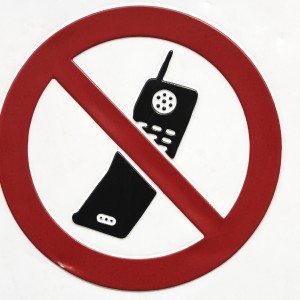
Cell Phone Searches and the 4th Amendment: You’re Going to Need a Warrant for That
A recent Supreme Court ruling took a strong stance in support of privacy, preventing law enforcement officers from searching individuals’ cell phones without a warrant. The Supreme Court made a combined, unanimous decision over Riley v. California and United States v. Wurie that police officers generally must obtain a warrant before searching a suspect’s cell phone regardless of what type of cell phone it is.
In the first case the Court discussed, the defendant was stopped for a traffic violation. After law enforcement accessed information on his cell phone, he was charged with a weapons offense and associated with gang activity. In the second case the Court discussed, the defendant was arrested after police officers believed they observed him engaging in a drug deal. Law enforcement officials then used information on his cell phone to determine the location of his residence, obtained a search warrant and found drugs and other contraband at the premises. The defendant was charged with drug and firearm offenses. In both of these cases, the defendants sought to have the evidence that had been discovered as a result of the cell phone searches excluded. In support of the searches, the government argued that a search of the data stored on a cell phone is “materially indistinguishable” from searching the types of physical items that are typically found on suspects such as address books and purses. Therefore, the government argued that law enforcement officials should be able to search cell phones without a warrant. The Court rejected this argument, humorously noting that, under the government’s logic, a ride on horseback would be materially indistinguishable from a flight to the moon.
Despite this, the Court did state that the exigent circumstances exception could apply, allowing an officer to search a cell phone without a warrant. Under this exception, an officer can search the information contained in a cell phone if it is necessary to prevent an imminent danger. Additionally, the Court stated that law enforcement officers may physically search a cell phone in order to ensure their personal safety. For example, an officer may examine the physical aspects of the cell phone in order to determine that a weapon is not hidden on or in it. Further, this ruling does not denote that cell phones cannot be searched at all; it merely states that officers must obtain a warrant before they perform a search of the cell phone.
Ultimately the Court’s ruling protects individuals’ privacy by requiring law enforcement officials to obtain a warrant before searching the information contained in cell phones. This case reinforces privacy interests in a technologically saturated world and serves as an example of how technological evolution may cause us to reconsider the scope of our constitutional rights.
For more information about criminal defense, Contact Garmo & Kiste, PLC at (248) 398-7100 for a free consultation or send us a private message.


